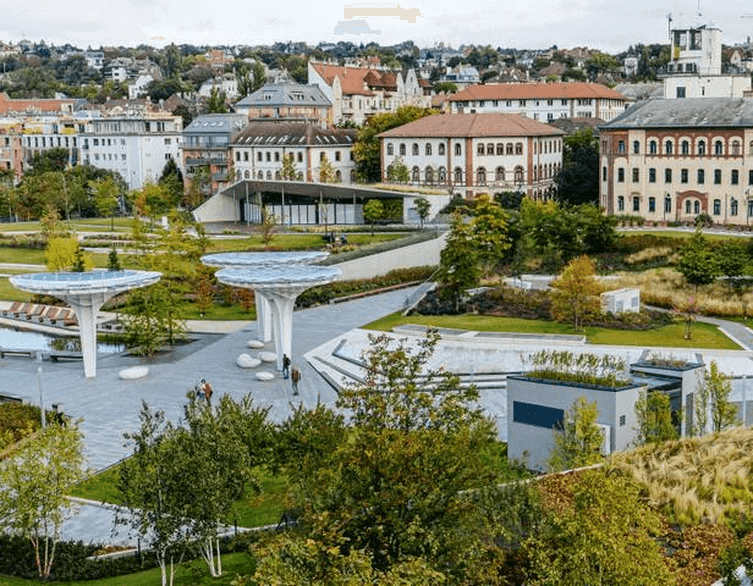Budapest Tourism Hits Record High: Why August 2025 Marks a Turning Point for International Visitors

August 2025 has become a defining moment for Budapest tourism, with nearly 2.8 million visitors flocking to Hungary’s captivating capital and surrounding regions. The surge in international arrivals tells a compelling story about Budapest’s growing reputation as Europe’s most exciting emerging destination, offering foreign tourists an unbeatable combination of history, culture, and value.
Foreign Visitors Lead Budapest’s Tourism Renaissance
International tourists drove Budapest’s remarkable tourism growth in August 2025, with foreign arrivals jumping an impressive 10 percent compared to the previous year. This surge translated to 1.3 million international guests who collectively spent nearly 3.4 million nights across the city’s diverse accommodation options, from luxury hotels to charming private guesthouses.
The numbers become even more striking when examining specific regions around Budapest. The greater Budapest area witnessed a phenomenal 22 percent increase in foreign visitors, making it the fastest-growing tourism region in Hungary during August. This dramatic uptick demonstrates that international travelers are discovering not only the capital’s renowned attractions but also the hidden gems in Budapest’s surrounding areas.
Hotels emerged as the preferred choice for international visitors, welcoming 71 percent of foreign guests staying in commercial accommodations. Hotel bookings by foreign tourists increased by 7 percent year-over-year, while private accommodations and alternative lodging options saw an even more impressive 14 percent growth. This diversity in accommodation preferences shows that Budapest successfully caters to every type of international traveler, from luxury seekers to budget-conscious explorers.
Best deals of Budapest
What These Numbers Mean for Your Budapest Experience
The tourism boom creates both opportunities and considerations for international visitors planning Budapest trips. The 14 percent increase in total accommodation revenue to 160.9 billion forints reflects growing demand, but it also indicates that early booking becomes increasingly important for securing preferred accommodations and competitive rates.
The seasonal patterns reveal strategic timing for international tourists. While August represents peak season with maximum activity and vibrant atmosphere, the growing popularity means shoulder seasons like autumn offer excellent alternatives with fewer crowds but maintained cultural programming and restaurant availability.
Budapest’s infrastructure has risen to meet international demand effectively. The city now operates 38,583 tourist accommodation establishments, including 3,009 commercial facilities comprising 1,022 hotels and 1,178 guesthouses. This extensive accommodation network ensures international visitors can find suitable options regardless of group size, budget, or preferred neighborhood.
Budapest’s Position in European Tourism Landscape
The January-August 2025 cumulative data positions Budapest exceptionally well among European capitals. Nearly 13.5 million guests visited Hungarian tourist accommodations during this period, representing a 6.2 percent increase over 2024. International arrivals specifically jumped 11 percent to 6.6 million visitors, demonstrating sustained global interest in Budapest as a premier European destination.
Tourism now contributes 13 percent to Hungary’s GDP while supporting 400,000 families directly or indirectly. This economic significance translates into continued investment in tourist infrastructure, cultural programming, and service quality that directly benefits international visitors. The Hungarian government’s commitment to tourism development ensures that visitor experiences will continue improving year over year.
Autumn Travel Trends Favor International Visitors
Recent booking data reveals that autumn represents an ideal time for international tourists to experience Budapest’s attractions with optimal conditions. Budapest tops the list of preferred destinations for domestic autumn travel, indicating sustained local confidence in the city’s appeal. This local endorsement, combined with international recognition, creates a dynamic atmosphere where visitors can experience both tourist highlights and authentic local culture.
The autumn booking patterns show that 39 percent of travelers plan two-night stays, while 32 percent prefer single-night visits. For international tourists, this suggests that Budapest works exceptionally well as both a destination-focused trip and a strategic stopover in broader European itineraries.
Hotel preferences during autumn lean toward 4-star and 3-star categories, with 32 percent of bookings targeting hotels specifically. This trend toward mid-range luxury accommodations aligns perfectly with Budapest’s value proposition for international visitors seeking high-quality experiences at reasonable European prices.
Strategic Implications for Future Travel Planning
The record-breaking August 2025 statistics position Budapest for what tourism officials predict will be another record-breaking year. For international tourists, this growth trajectory suggests several strategic considerations for optimal visit planning.
Early reservation becomes increasingly important, particularly for preferred accommodation types and dates. The 14 percent revenue growth indicates that popular options fill quickly, making advance planning essential for securing ideal Budapest experiences.
The data also reveals that Budapest successfully maintains appeal across diverse international markets simultaneously. Unlike destinations that experience sudden popularity spikes followed by declines, Budapest’s steady growth patterns suggest sustainable development that preserves the authentic character international visitors seek.
Budapest Ferenc Liszt International Airport’s record-breaking performance, welcoming 1.9 million passengers in August 2025 alone, confirms the city’s excellent accessibility for international tourists. The 7.7 percent increase in airport traffic directly correlates with tourism growth, ensuring continued flight availability and competitive pricing for international routes.
This tourism renaissance reflects Budapest’s successful balance between preserving historical authenticity and embracing modern hospitality standards, creating the perfect environment for international visitors seeking genuine European experiences enhanced by contemporary comfort and convenience.
Related news














